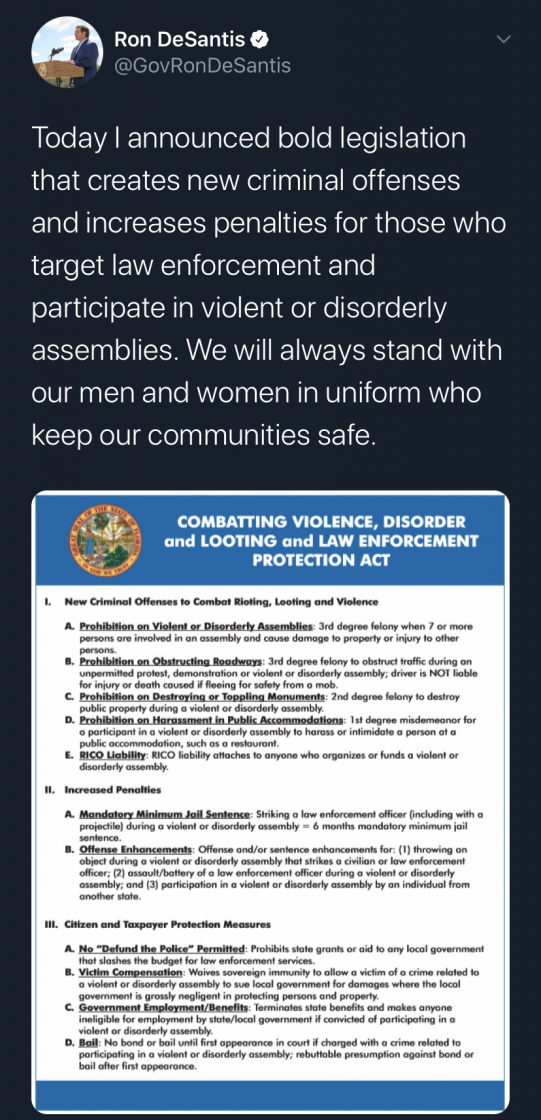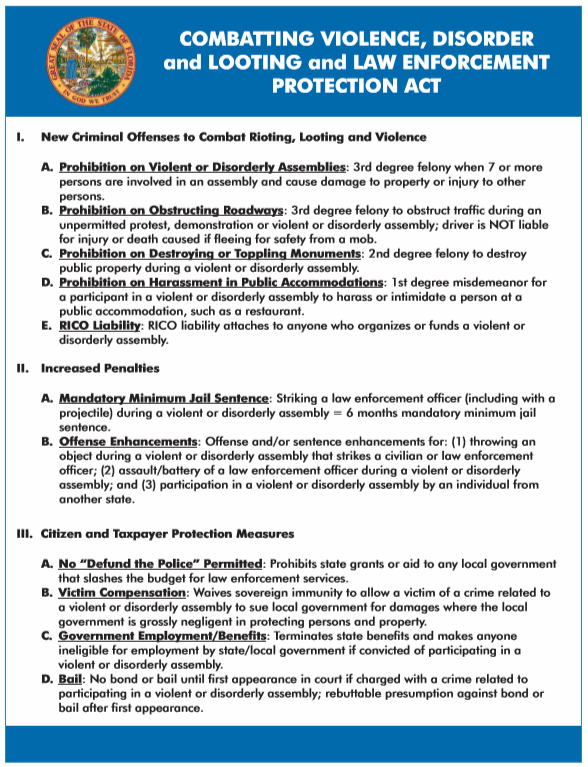Sofia Lombardi is also president of the New College Student Alliance.

On Monday, Sept. 21, Florida Gov. Ron DeSantis announced his proposal for new legislation that seeks to create harsher penalties for those who participate in political speech that targets police. This proposed legislation, known as the “Combatting Violence, Disorder and Looting and Law Enforcement Protection Act,” comes after months of nationwide Black Lives Matter demonstrations that have been met with an abundance of criticism from the political right.
One measure in the act is directly targeted against public employees: section III, part C, which describes government employment benefits, reads “Terminates state benefits and makes anyone ineligible for employment by state/local government if convicted of participating in a violent or disorderly assembly.” Alongside increased criminal penalties for those convicted of this form of political participation, this component could directly affect employees of New College.
“I think the consequences would be disastrous if this became state law,” Michael Gorup, professor of political science, said. “As a public employee, I’m concerned that it’s an explicit attempt to muzzle the speech of public employees and suppress political activity.”
Another element of the act could have far reaching consequences for voting rights. With criminal penalties increasing to felony charges, those convicted for typical forms of political speech and assembly could lose their right to vote.
“This could have long term downstream political consequences that would be really bad, and despite the fact that over 60% of [Florida] voters in 2018 decided that people with felony charges should be able to vote, the Republican legislature decided to overturn that,” Gorup said. “DeSantis has been very supportive of that.”

While committee weeks will not begin until January and the legislative session will not begin until March, there is always potential for a special session to be called beforehand. This would help DeSantis push this act through the state legislature with minimized publicity.
